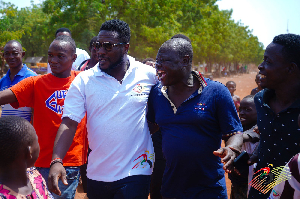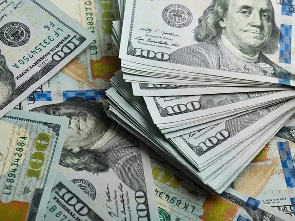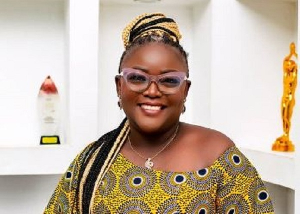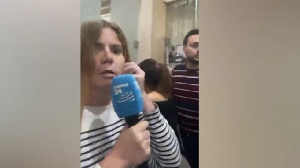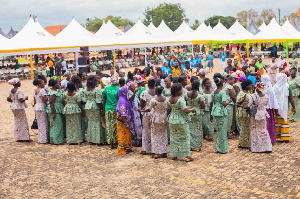- Home - News
- TWI News | TV
- Polls
- Year In Review
- News Archive
- Crime & Punishment
- Politics
- Regional
- Editorial
- Health
- Ghanaians Abroad
- Tabloid
- Africa
- Religion
- Election 2020
- Coronavirus
- News Videos | TV
- Photo Archives
- News Headlines
- Press Release
General News of Friday, 22 August 2003
Source: GNA
Ghana wants ECOWAS to prioritise railway link to Member-States
(From Beatrice Akua Asamani GNA Special Correspondent, Lome)
Lome (Togo), Aug. 22, GNA- Ghana, on Friday, asked the ECOWAS Bank for Investment and Development (EBID) to prioritise the project that would link her capital, Accra to Lagos through Lome and Cotonou, by rail.
The Vice President of Ghana, Alhaji Aliu Mahama, made the proposal when he inaugurated the first Board of Governors of EBID in the Togolese capital, Lome.
The project, he said, did not only meet the ECOWAS' objective of integration but also march the NEPAD Regional project concept. EBID, the financial arm of the 15-member regional body that replaced the ECOWAS Fund set up with the organisation in, 1975, for development projects and the compensation of Member States who suffered as a result of the integration process.
However, in view of the weaknesses of the Fund, caused by limitation, to mobilise resources and the changes in the economic environment, which now favour private-sector-led development, ECOWAS initiated a new process, 13 years ago, to have a more responsive and vibrant to financial institution, hence EBID.
EBID, which has two subsidiaries, will consequently support regional integration, infrastructure and other development programmes in the public and the private sectors.
Vice President Mahama, however, noted that EBID would be cash-strapped if member countries failed to contribute their call-up capital, which is in arrears of 11 million Units of Account (UA). He, therefore, tasked the Governors, who comprise representatives of ECOWAS Member States, to devise innovative and pragmatic means of collecting the debt.
"You would have to discuss, dispassionately and address the issue of Member States' arrears to call-up capital of the Bank," Alhaji Aliu Mahama," told them.
"This is a matter of great concern, which has to be resolved immediately, else, the international capital market would not take this new Bank seriously".
About 603 UA or 750 million dollars is authorised as capital of the Bank to be realised by member states contributing two-thirds of the amount and non member states paying the remainder. Vice President Mahama complained about the high poverty levels on the continent, worsened by poor economic performance. He said: "The entire continent of Africa is still in a precarious economic situation, characterised by a very high population growth and a relatively low rate of growth.
"Indeed the economic performance of African states remains below the seven per cent growth rate fixed by the Millennium Development Goals that aim at reducing poverty by half, by 2015."
Vice President Mahama, however, expressed hope that the Bank with its subsidiaries would work assiduously to address the situation. The subsidiaries would support the development of ECOWAS through the financing of special programmes and projects.
They are ECOWAS Regional Integration Bank (ERIB) and the ECOWAS Regional Development Fund (ERDF).
ERIB will focus on financing the private sector while ERDF will sponsor non-commercial public sector and poverty reduction programmes and also serve as a facility to support the effort of NEPAD.
Mr Christian Adovelande, President of the EBID, explained that member countries had paid only 43 per cent of the total call-up capital for the first phase.
Mr Adovelande complained about the poor collection rate of levies that rendered the defunct ECOWAS FUND weak, but said efforts would be intensified to improve the situation.
He, however, acknowledged the poor economic performance rate of African economies, saying it deteriorated from three per cent to 2.8 percent last year, the lowest since 1995.
He expressed his determination to work with the Board of Governors, the highest policy making body of the institution, to transform the Bank into a "cradle of performance and excellence".
Togolese Prime Minister, Koffi Sama, said internal funds would not be adequate for project financing and encouraged managers of the Bank to implement programmes that would secure adequate external funds. "You must be progressive and dynamic in your mobilisation drive to meet the expectations of the people", he said.
Mr Samuel Apea, Managing Director of the ECOWAS Fund, from 1993-1998, told the Ghana News Agency (GNA) in an interview after the ceremony, that the major challenge of the Bank was the mobilisation of contributions from member states.
He said the World Bank and the European Union (EU), the major external financiers, were being deterred by the attitude of non-payment of levies and call-up capital, which has become a chronic attitude of member states.
The Board of Governors are members of the ECOWAS member states that are either Finance or Economic Planning Ministers while the Board of Directors is made up of technical experts.
Dr Kofi Konadu Apraku, Ghana's Minister of Regional Integration and NEPAD, is a member of the Board of Governors while Mrs Matilda Obeng-Ansong, Managing Director of the Ghana Commercial Bank (GCB) is serving as a Board Director.
The Vice President has since returned home. 22 Aug.03


